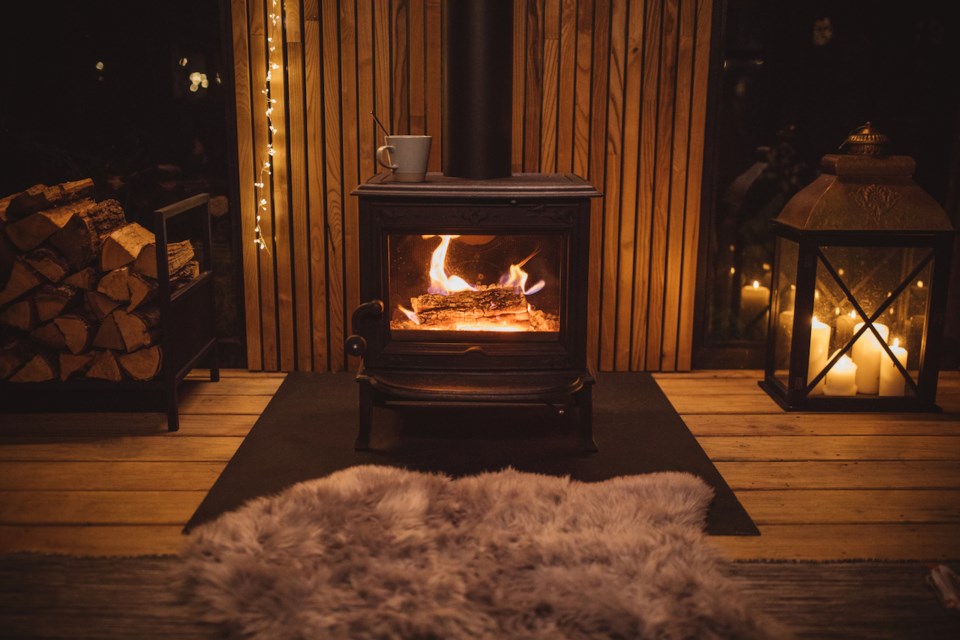Metro Vancouver is looking for cleaner air this summer.
From now on, a wood fire in your indoor fireplace will be banned across the Metro Vancouver region between May 15 and Sept. 15 every year. This includes on Bowen Island.
The seasonal indoor burning ban is part of a phased Metro Vancouver bylaw aimed at improving regional air quality. It was adopted in late March last year.
For the four summer months, Metro Vancouverites aren’t permitted to use residential indoor wood-burning appliances (indoor fireplaces) unless the appliance is the only heat source, in an off-grid home outside of the urban containment boundary (Bowen is outside of this boundary, Lions Bay is not) or if there is an emergency.
The bylaw was adopted to protect public health, says Esther Bérubé, division manager for air quality bylaw and regulation at Metro Vancouver.
Residential wood burning accounts for about a quarter of fine particulate emissions in the Metro Vancouver region, says Bérubé, emissions that can affect respiratory and cardiac health. “So often we think that wood smoke is innocuous but it’s actually [got] quite significant health impacts. It can also be carcinogenic.”
These restrictions are seasonal. “Generally, because it’s warmer, burning tends to be done more for aesthetic reasons or ambience. And really, the health impacts of it then are really not justified,” says Bérubé.
As of September 2022, residents within the urban containment boundary will need to register their appliances and declare that they’re following best burning practices. As of 2025, Metro Vancouverites within the boundary will need to renew their registration every three years and unregistered devices won’t be allowed.
Exemptions are in place for low-income households using wood as a principle heat source in these later phases but not for the seasonal ban.
Already in place is a requirement across the region to follow best burning practices (including burning clean, seasoned wood or manufactured pellets or logs; no garbage burning and producing no visible emissions except for when the fire’s getting started).
Part of the bylaw’s intent is to encourage people to use Metro’s wood stove exchange program, says Bérubé. If Metro Vancouverites trade in old uncertified appliances, they can receive rebates of $250 or $400 (there are just 150 rebates remaining in 2021, according to Metro’s website).
Bowen Island caught off guard
Bowen Island, however, was caught off-guard by the bylaw.
It was Coun. Alison Morse who had a keen eye on the information items on the municipal council agenda Monday evening and caught the Metro Vancouver notice and asked if it applied to Bowen.
The municipality’s managers meeting the following morning was the first time Bowen fire chief Aaron Hanen says he became aware of the bylaw. “I’m surprised this is the first that I’m hearing of it as well,” he says, adding that while the fire department does do education around other Metro Vancouver fire-related regulations (like burn days), enforcement is up to the regional district.
Starting with education
Metro Vancouver has its own enforcement officers but they’re likely not on Bowen often.
Instead, there’s an air quality complaint line concerned islanders can call (604-436-6777).
And while the bylaw has provisions for fines up to $10,000, enforcement always starts with education and then ticket notices and lower fines, says Bérubé.
"Sometimes people just aren’t aware of the health impacts of smoke from burning,” she says. “Hopefully, by receiving information about it, and knowing that there’s a regulation in place that makes a certain activity prohibited, then people will change their behaviour.”


-2.jpg;w=120;h=80;mode=crop)
